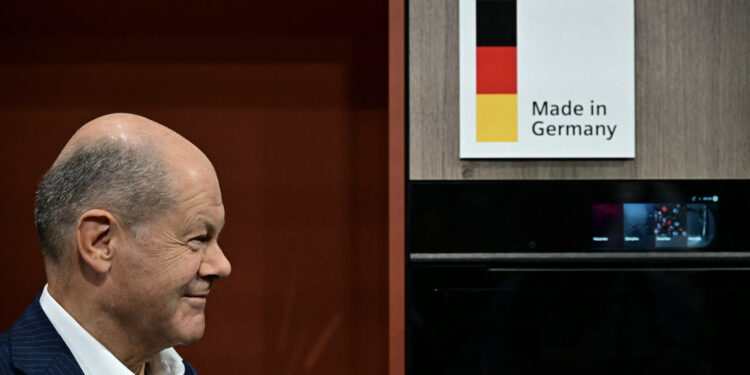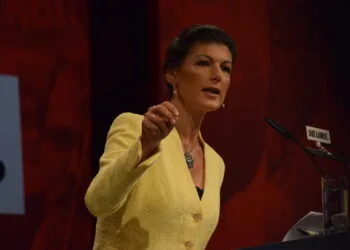Brussels – Popularity at an all-time low for German Chancellor Olaf Scholz ahead of the 2025 federal elections. The attempt at revival passes through the “Made in Germany” bonus and the automotive industry.
The election polls look bad: Scholz’s Social Democrats (SPD) fare below the centre-right Christian Democrats of the CDU/CSU and the far-right Alternative für Deutschland (AfD). Scholz’s performance does not please German voters, registering the lowest result in approval ratings since 1997 for a chancellor.
However, the Social Democrats, who have agreed on a programmatic strategy to revive Scholz as a candidate and the party’s popularity, are not giving up. The SPD leader, Lars Klingbeil, declared: “Our goal is for the SPD to emerge as the strongest force in the Bundestag elections twelve months from now and to continue to hold the chancellery.”
As reported by the German daily Bild, the strategy consists of key chapters purely focused on the economy and the protection of the middle class.
The Made in Germany bonus for companies would consist of tax breaks for international investors who produce on the country’s soil, to revive Germany as an export hub and counteract the crisis that the industry is going through.
The crisis has spread like wildfire, putting even the manufacturing sector (especially the automotive sector), a key industry for the German economy, in pain. The Ifo Institute’s estimates for 2024 prospect zero growth for the German economy, also hurt by the EU’s sustainable agenda and its impact on the manufacturing sector, where there is “an investment crisis.” A hot topic also in Brussels, where climate targets are being discussed in relation to the automotive industry. Germany’s Economy Undersecretary Sven Giegold had said (September 26) that “climate targets are crucial“—both those to 2035 (the stop on internal combustion engine vehicles) and the intermediate targets to 2025 (the 15 per cent reduction in CO2 emissions compared to 2021 values). The same is true with regard to the date of 2026 for the activation of the review clause of the emissions regulation.
The topic’s relevance has not gone unnoticed by the German Social Democrats, so in the document, one of the proposals appears to be the introduction of a purchase premium for electric cars. The proposal will be built triangularly with unions and the auto industry to revitalise the sector, together with e-car quotas for leasing providers and tax rebates for electric company cars. This path will allow SPD to put itself forward as the political party most aligned with the EU on the merits of decarbonisation of the automotive sector, which has instead found clear opposition from the CDU and AfD.
The third macro-topic of the “Save Scholz” plan is tax reduction. There is talk about a decrease for “the vast majority of taxpayers (about 95 per cent) after the next general election,” resulting in the responsibility of higher-income citizens, whose contribution will be used to help the middle class.
A taxer les riches the German way will surely not please political opponents. The CDU candidate, Friedrich Merz, at the CSU congress on October 12, said that citizenship income costs the federal republic dearly and that welfare state resources must be generated, proposing a very different perspective than aid for the middle class.
Geopolitics is a phantom topic. It does not appear that the Social Democrats found it necessary (or beneficial) to talk about the Middle East crisis, Ukraine, or migration in the document, perhaps also considering the recent discussions on the German policy towards Israel. Full focus on the German economy, which is close to voters’ hearts and even more so to Scholz. His reelection, according to current estimates, seems to look more like a utopia than a possibility, but until September 28, 2025, the electoral game is still wide open and playable for the SPD candidate.
English version by the Translation Service of Withub






